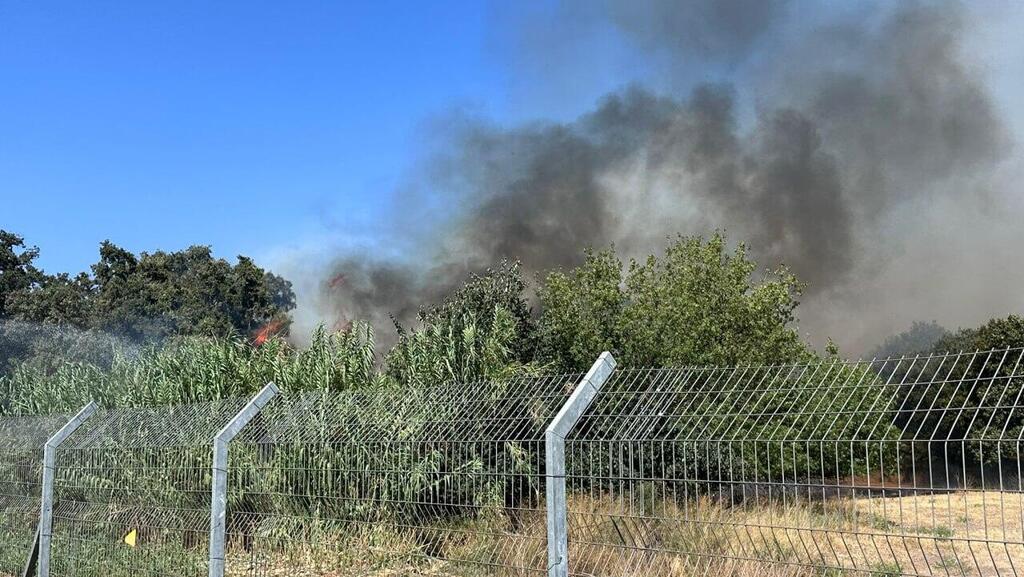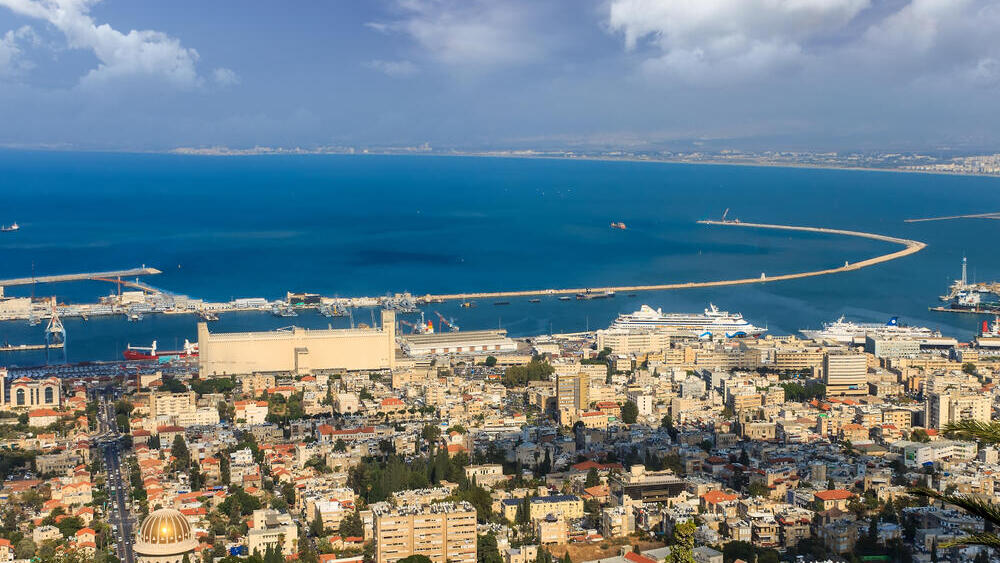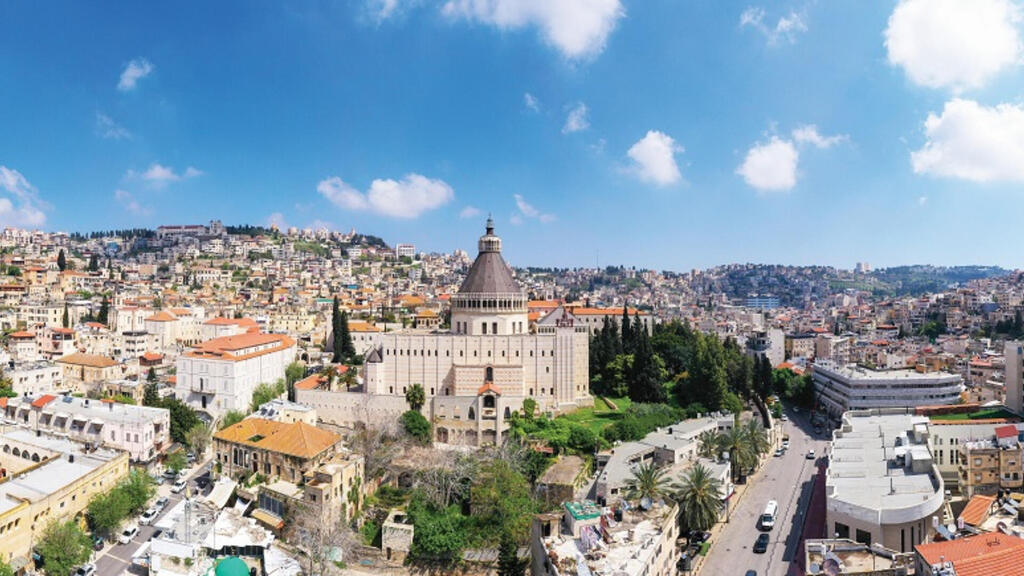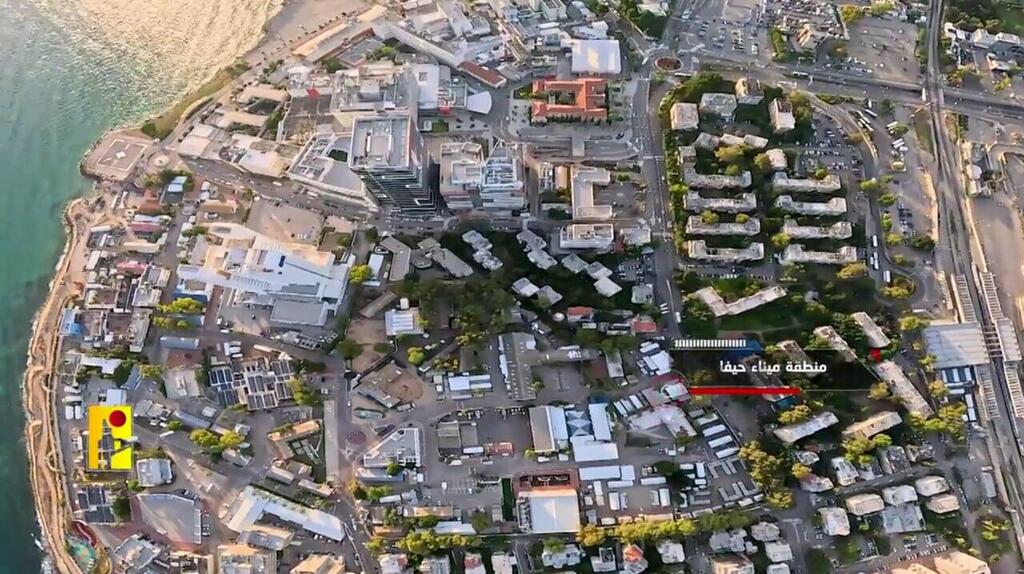Getting your Trinity Audio player ready...
As a key hub for Israel's maritime trade and military logistics, Haifa is also home to some of the country’s largest petrochemical plants and a major research and development center for global tech giants like Intel and IBM. It also hosts the Technion – Israel Institute of Technology and Haifa University. However, with the Gaza war and the threat of escalation with Hezbollah and Iran, Haifa — a beachfront city of around 300,000 and Israel’s third largest — is facing an unprecedented stress test.
Around one million people live in Haifa’s district, known for its diverse demographics. Haifa’s population, comprising 69% Jews, 21% Muslims, 3% Druze, and 2% Christians, has long been accustomed to coexistence. Yet, the city’s usual narrative is now at a critical juncture, though Haifa’s mayor remains optimistic, asserting that his city “is the only sane capital of Israel.”
Yona Yahav, who previously served as Haifa’s mayor from 2003 to 2018, won again in the 2024 municipal elections. The Labor Party politician recently hosted international correspondents at Haifa’s town hall to share his insights on a potential Iranian attack.
“This is the only place in the world that has exercised, for more than 100 years, full peace between Jews and Arabs. We’re very happy and proud about it,” Yahav said. “Four thousand rockets per day, that’s what we anticipate. But the difference is that today’s rockets are very direct and very good. I guess nothing will happen because all sides will come to the idea they have to agree on something. We have no other choice,” he added.
Despite the leadership’s optimistic tone, the claim that “nothing will happen” contrasts with local concerns about a potential Iranian attack and the shifting dynamics among religious groups.
Moussa Bashtawi, a Haifa business owner, told The Media Line that a lot has changed. “It is like a revolution, both economically and psychologically. People don’t go out to work. People are scared. I am a business owner. I don’t bring in goods. The situation is difficult.”
Bashtawi, an Arab Israeli citizen, explained that Hezbollah’s attacks affect everyone. “I don’t feel safe. I hear the bombs, but I don’t hear the screams. It falls here, in Akko, in Nahariya. It’s close here. It’s in the north. We don’t hear the screams. The situation is on the rise. I hope it won’t harm me.”
4 View gallery


Fires in the Galilee following Hezbollah barrages
(Photo: Israel Fire and Rescue Authority)
'Every day, we don’t know what will happen'
Tareq, a Nazareth resident who works in Haifa, also spoke to The Media Line. “Everything changed. The whole situation is unbelievable. Every day, we don’t know what will happen. There’s definitely a bigger game at play, but I don’t know who’s behind it. It’s between states and international powers. I’m very sorry about the people and the kids getting killed every day. We’re here in the North, waiting for the bomb and where it will come from,” he said.
“The whole economy is collapsing. I’m working in tourism; I know that no tourists are coming. When no tourists are coming, we’re firing people. We’re giving people vacations, and I don’t know if they’ll come back if the war will finish. So the most beautiful thing that could happen is to stop the war, stop killing each other, and make peace. This is what we’ve been dreaming about for 70 years. It’s enough,” Tareq concluded.
Shai Oren, a Haifa resident working in farming, spoke to The Media Line about his perception of life in the city since October 7. “People live with a little more fear. We don’t feel the issue of violence here, but there is a general sense that a bigger war can always break out, and it affects all the residents in the area,” he said.
In contrast to Israeli and Palestinian leaders, Oren thinks that Haifa is “an example of coexistence. No matter if they are Israeli Arabs or Jews, they live here in harmony and in peace. I hope that as there is coexistence in Haifa, it will be the same everywhere, both in Israel and around the world. In my opinion, this will not be affected.”
“All the extremists only make trouble. And in the end, the simple people always live together and love each other,” Oren added.
'The world fled from here'
Diora works at an ice cream parlor in Haifa while finishing her final two months of military service. Speaking to The Media Line, she described how the war has disrupted her routine.
“It has an impact on all of Israel because half of the world fled from here. I can tell you that I also thought a few times about leaving the army and leaving the country. It is devastating here. You are afraid to walk on the street. You are afraid to get on the buses and, if so, to stop at a gas station.”
“Everything that is outside is very devastating. Even staying at home is devastating. Sometimes, there are no safe spaces, or we have to go down to the bunkers of buildings. There are not enough safe spaces,” Diora said.
Despite widespread dissatisfaction among Haifa’s population, Israeli military representatives, city authorities, and public servants are hard at work. During a recent event for international correspondents, Haifa’s municipality showcased the largest of its six emergency centers. Tal Siboni, head of the Haifa municipality call center operating within the emergency center, explained that they handle all tasks required by the municipality.
“On routine days, we receive calls about public hazards, like potholes and other dangers, and we dispatch the appropriate departments to address them. When alarms go off or the situation worsens, people naturally become more anxious,” Siboni told The Media Line.
“This facility wasn’t built just for war. It’s designed for all types of emergencies, including earthquakes and chemical outbreaks. The goal is to have a secure location from which we can manage the city and establish a forward headquarters,” Siboni explained.
Yair Zilberman, Haifa’s director of emergency preparedness and security, confirmed that supplies are fully stocked. “We have dry food, mattresses, generators, Wi-Fi, and everything we need to stay as long as necessary. The entire municipality’s data center is connected to this location.”
As the tension over a possible Iranian attack mounts, Haifa’s residents grow increasingly concerned and stressed. “We’re getting more calls about the situation. Most are requests for information and guidance—what equipment to prepare, where to go. Some are anxiety-related, and we refer those callers to psychologists who provide around-the-clock assistance to those in need,” Zilberman said.
Given the growing likelihood of escalation between Israel and Iran, Siboni confirmed that preparations for war have been underway since October. “People have been calling us for months—preparing, getting ready. We’re here, prepared for whatever happens, so nothing has really changed.”
However, there’s been no widespread panic, according to the head of Haifa’s municipality call center. “No matter what happens till now, we don’t see panic from the people, which is a very good sign. I know they are concerned. I know they are worried about their families. At the same time, they’re really determined, and this is our home.”




